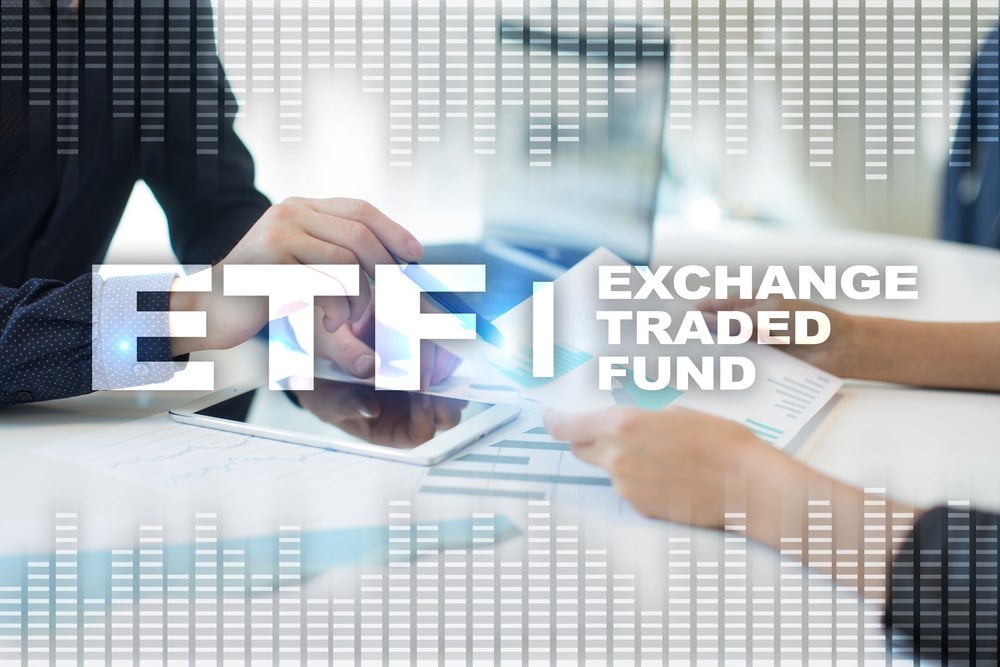
The National Basketball Association (NBA) has so-called "superteams" that boast multiple superstars on one roster. Is there an equivalent in the investment world?
Yes: funds of funds.
A fund of funds is simply a collection of investment funds wrapped in one package. It effectively takes the benefits of owning a diversified exchange-traded (ETF) or mutual fund and turbocharges them. Investors get exposure to multiple managers, sectors — and a ton of individual securities. The result: a "superfund" that maximizes diversification and minimizes risk.
An asset allocation fund is a subset of this investing style, which spans asset classes like bonds, stocks, real estate and alternatives. Think of it as a sampler platter that aims to match an investor's risk appetite and return goals. Balanced funds and target retirement date funds are common examples.
As with individual funds, however, not all funds of funds are strong investments. Some have sub-par performance numbers relative to their benchmark. Others perform relatively well but have high expenses that eat away at returns.
We've done some initial due diligence for you. Focusing on lower-cost ETFs, we sifted through over 100 allocation funds to find ideas with favorable risk-reward profiles. Here are a few of the "Swiss army knives" we like best.
iShares Aggressive Allocation ETF
iShares Aggressive Allocation ETF (NYSEARCA: AOA) is the best low-cost fund of funds ETF for higher-risk investors. With a net expense ratio of only 0.15%, the superfund includes a broad mix of bond and stock ETFs — seven, led by the popular iShares Core S&P 500 ETF (IVV), which accounts for 44% of the fund. It also exposes you to U.S. mid-cap, U.S. small-cap, international developed and emerging market equities.
Bonds comprise approximately 20% of the strategy and are represented by a pair of exhaustive bond ETFs — one U.S. and one international.
Almost $2 billion is invested in AOA, so selling shares if necessary won't be a problem. And even though the strategy is on the aggressive side, it kicks off a nice quarterly dividend. Based on distributions over the last 12 months, the yield is 2.1%. Combined with share price appreciation, AOA has a 9.4% total return over the past year — more than double the return of its fund category.
SPDR SSgA Global Allocation ETF
The SPDR SSgA Global Allocation ETF (NYSEARCA: GAL) is State Street's flagship asset allocation fund. It is a less aggressive alternative to AOA in that typically 60% to 70% of the fund contains stock ETFs. It's separated from peers by its inclusion of 20 ETFs. A wide assortment of broad equity funds, sector funds, bonds funds and even a gold fund makes for a highly diversified investment. What's also unique about GAL is its emphasis on non-U.S. markets. At least 30% of assets are invested in international securities, be it stocks or bonds.
GAL carries a reasonable 0.35% expense ratio, which allows investors to pocket the lion's share of the gains. Over the last 10 years, GAL’s annualized return is 4.8%, placing it in the top 20% of global allocation funds. The cash payments provided by the individual bond and stock ETFs amount to a yield of roughly 3%. Investors bank about 2.6% of the annual cash distributions after the fees, with a barely-noticed expense ratio. Remember, plenty of standalone ETFs are out there with expense ratios well above 0.35%.
Adaptive Alpha Opportunities ETF
The Adaptive Alpha Opportunities ETF (NYSEARCA: AGOX) is a bit of a different animal regarding superfunds. For starters, a lesser-known fund family, Adaptive ETFs, manages it, which constructs its funds to be more agile when reacting to market conditions. With an "adaptive correlation" principle driving asset allocation decisions, AGOX contains 156 holdings, but there’s a catch. Not all are ETFs.
While ETFs are at the core of the strategy, AGOX also invests in individual stocks. Facebook, NVIDIA and Transdigm are among its largest single-company holdings. The "go anywhere" equity-only fund uses a momentum-driven process to determine turning points in market cycles. When the economic backdrop supports stock rallies, the fund invests more and/or takes on more risk — and vice versa.
This fund is expensive. Total annual operating expenses are 1.54%. But given the performance track record, the price of admission may be worth it. AGOX has a 9.2% annualized return over the last 10 years, ranking it No. 1 among over 100 similar funds.














